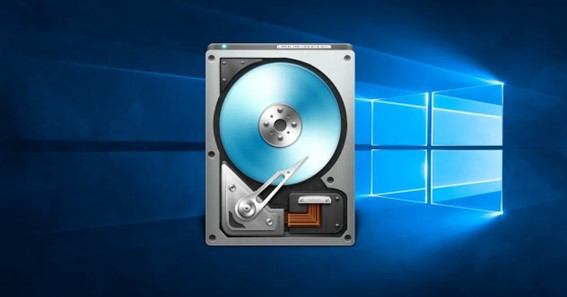Are you curious to know what is fixed disk? You have come to the right place as I am going to tell you everything about fixed disk in a very simple explanation. Without further discussion let’s begin to know what is fixed disk?
In the realm of computer storage, fixed disks play a crucial role in preserving and accessing digital information. These reliable and high-capacity storage devices have become an integral part of modern computing systems. In this blog post, we will explore the concept of fixed disks, their characteristics, advantages, and their significance in today’s digital world.
What Is Fixed Disk?
A fixed disk, also known as a hard disk drive (HDD), is a non-removable storage device used for storing and retrieving digital data in computers and other electronic devices. It consists of one or more rigid platters coated with a magnetic material, along with read/write heads that move across the platters to read and write data. The platters are stacked on a spindle, and the entire assembly is enclosed within a sealed casing to protect it from external elements.
Characteristics Of Fixed Disks:
- Storage Capacity: Fixed disks are known for their large storage capacities, ranging from several gigabytes (GB) to several terabytes (TB). This capacity allows users to store a vast amount of data, including operating systems, applications, documents, multimedia files, and more.
- Data Access Speed: Fixed disks provide fast data access speeds, allowing for quick retrieval and storage of information. The rotational speed of the disk, measured in revolutions per minute (RPM), affects the data access speed. Higher RPMs generally result in faster data transfer rates.
- Data Persistence: Unlike volatile storage media such as random access memory (RAM), fixed disks retain data even when the power is turned off. This characteristic makes them suitable for long-term storage and ensures that data remains intact and accessible over extended periods.
- Reliability and Durability: Fixed disks are built to withstand regular use and offer high levels of reliability and durability. The encased design protects the internal components from physical damage, dust, and other environmental factors, enhancing the longevity of the device.
Advantages Of Fixed Disks:
- Storage Capacity: The primary advantage of fixed disks is their large storage capacity. With increasing data storage requirements in today’s digital age, fixed disks offer ample space to accommodate vast amounts of information, enabling users to store files, documents, multimedia content, and applications conveniently.
- Cost-effectiveness: Fixed disks are generally more cost-effective compared to alternative storage solutions such as solid-state drives (SSDs). This makes them an attractive option for individuals and businesses seeking affordable yet reliable storage solutions.
- Compatibility: Fixed disks are widely compatible with various computing systems, including desktop computers, laptops, servers, and external storage devices. This compatibility ensures that users can seamlessly integrate fixed disks into their existing systems without any compatibility issues.
- Data Organization: Fixed disks allow for efficient organization of data through file systems. Users can create folders, directories, and file hierarchies to structure and categorize their data, making it easier to locate and access specific files when needed.
The Significance Of Fixed Disks:
Fixed disks play a pivotal role in the storage and retrieval of digital information in various domains:
- Personal Computing: Fixed disks serve as the primary storage medium in desktop computers and laptops, providing users with ample space to store their personal files, documents, multimedia content, and applications.
- Business Applications: In the business world, fixed disks are essential for storing critical data, databases, customer information, financial records, and enterprise applications. They form the backbone of data management and ensure the availability and integrity of important business information.
- Data Centers and Servers: Fixed disks are crucial components of data centers and servers, where massive amounts of data are stored and accessed by multiple users simultaneously. Their reliability, large capacity, and fast data access speed make them ideal for handling the demanding storage requirements of enterprises.
Conclusion:
Fixed disks, or hard disk drives, are indispensable components of modern computing systems. With their large storage capacities, fast data access speeds, and durability, they provide a reliable storage solution for personal and business use. Whether it’s storing personal files, managing databases, or supporting critical business applications, fixed disks play a vital role in preserving and accessing digital information. As technology continues to evolve, fixed disks remain a cornerstone of data storage, ensuring that our digital lives and enterprises can thrive with confidence.
FAQ
What Is A Fixed Disk Drive?
A disk drive in which the storage medium is permanently attached within the device. The drive may contain more than one disk — the so-called disk stack. The individual disks in the stack are called platters.
Which Disk Is Fixed Disk?
Alternatively called a fixed disk drive, fixed media or fixed storage, a fixed disk is a hard drive inside the computer. The word “fixed” is used because the drives are internal or in an enclosure that’s not easily removed.
Is A Fixed Disk A Ssd?
A “Fixed Hard Drive” is NOT an SSD (Solid State) drive.
Is Fixed Hard Disk Same As Ssd?
SSD vs HDD: What’s the difference? HDDs are traditional storage devices with spinning platters that read and write data. SSDs use newer technology that stores data on instantly accessible memory chips. SSDs are faster, quieter, smaller, consume less energy, and more durable.
I Have Covered All The Following Queries And Topics In The Above Article
What Is A Fixed Disk Quizack
Fixed Disk Example
Which Of The Following Disk Is Fixed Disk
What Are The Long-Term And Short-Term Categories Of Storage In A Computer
Fixed Hard Disk Vs Ssd
Difference Between Fixed And Removable Disk Drives
Which Choice Is Not A Current Mass Storage Type
What Is Fixed Disk
Is a fixed disk an SSD
What is a fixed disk drive
